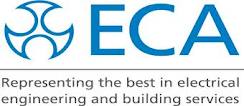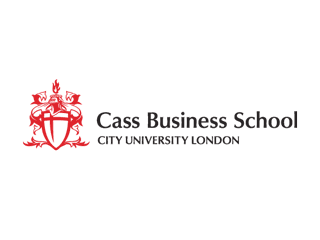
Showing all pages regarding business support.
Strategy tips for Barclays
With the departure of Bob Diamond as Barclays’ Chief Executive, there is much speculation about the bank’s future strategy and discussion about the strategic options available to Barclays following this week’s dramatic events. This got me thinking about the role of strategic planning in organisations and what makes for a good strategy.
I am continually surprised at the number of organisations I talk to who don’t have a clear strategic plan which informs everything they do. Some will claim to have a plan but, when I question further, it isn’t really being implemented, not everyone knows about it and it doesn’t get reviewed on a regular basis. A well executed strategic plan helps an organisation to know what they are trying to achieve and how they will get there. More than that, it helps everyone in your business to be focused, motivated and efficient.
As a non-Executive Director for a number of charities I am often concerned about the lengthy progress reports received by the Board. These reports provide an update on progress against a long and varied list of activities to develop new ideas or explore opportunities. These charities are not well resourced; staff are stressed and work very hard. The problem is that, in some cases, there is no clear understanding of the overall goal for the organisation, nor is there a well communicated, carefully monitored plan to achieve the goal. No one is really sure about the priorities or the actions that are critical to the organisation’s success.
The liberating part of a good strategic plan is that it helps you to define not only what your organisation must or will do, but also what it will not do. Each potential opportunity or initiative must be evaluated to determine how it will contribute to the overall goal. If it doesn’t clearly contribute to achieving the goal it doesn’t get done. The result is a more effective, motivated organisation that has clarity about what it is trying to do.
I am sure Bob Diamond had a strategic plan for Barclays, whether it was a good plan is another matter. Strategic planning is essential to good business. MBAs are told this and Chief Executives know it. Most of us understand how to formulate a strategy. What doesn’t get talked about so much is the execution of the strategy. How many excellent strategic plans must there be out there which, once written, sit on a shelf gathering dust while life goes on as before? Although the task of developing a good plan is not always easy, the really hard part is engaging staff in its implementation and constantly reinforcing the plan by good communication throughout the organisation. A plan that isn’t understood, supported, rigorously monitored and reviewed simply won’t get done – what a waste of effort!
Financial Times item sparks MBA debate
I was amazed and encouraged by the overwhelming response to my article published this week in the Financial Times (“Rip up the MBA and start afresh”, The Financial Times, Monday 16 April). My mission to reinvent the MBA has sparked quite a debate. In the article I call for a review of the MBA, arguing that, if it is to continue to provide business with well rounded, effective leaders, it needs to change. I have long been an advocate for the MBA and have first hand experience of its benefits. I will continue to recommend the MBA as a means of broadening your business knowledge, acquiring new skills and achieving a step change in your career.
My concern is that the MBA curriculum has become too crowded and confused, partly because business schools have, to their credit, responded to changes in business and to demands for more skills and specialisms in the MBA syllabus. The time has come for a fundamental review starting with a fresh look at what it takes to be an effective business leader. I would like to see an MBA that truly reflects the needs of business today and that places a much greater importance on the development of practical leadership skills.
I demonstrate in my work every day that, with the right support and coaching, people are capable of learning how to lead effectively. It would be a significant step forward for the MBA if leadership development became central to the qualification. The mission continues.
To read my FT article go to http://www.ft.com/cms/s/2/c5b11ece-6229-11e1-872e-00144feabdc0.html#axzz1sOUZwmeO
How to get a return on your (training) investment
A recent article by Robert Terry in the Financial Times (FT) complains that, despite the significant sums spent annually on training and development by companies, very little of what is learnt translates into improved performance in the workplace. Studies shows that only 5-20% of the learning from training has any impact on the business. Given the current obsession with measuring everything against business targets, this is puzzling if not shocking. “Surely” Terry suggests “a training industry that delivers less than 20 per cent cannot be fit for purpose.”
He is right. Much of the training delivered globally, within companies or by universities, is probably ineffectual. Yet still many organisations fail to measure the impact of training on the business and individual performance. Terry suggests that one reason for this is the lack of any participation or involvement of line managers in individual staff development. He argues that managers fail to take responsibility for the learning and development of their staff and should be held to account for the transfer of training to the workplace. Trainers should also be more concerned with the application of training and how it will benefit the business.
As a leadership development specialist I take this issue very seriously and have long been promoting various approaches which help to ensure that companies and individuals get a return on their investment in training and development. First let’s look at business schools and the MBA – generally considered to be the leading international business qualification. I am a strong advocate of the MBA, but, despite the considerable cost of tuition, there is surprisingly little evaluation of how the qualification benefits business or its impact on individual performance. Many employers express the concern that MBA training is too divorced from the reality of business. Some are also reluctant to sponsor employees to take an MBA because of the risk that, once qualified, their employee will be off to find a higher paid job with better prospects. Many companies attempt to manage this risk by ‘tying in’ the employee with a contract requiring them to stay with the company for a certain period after qualifying. Well, it may stop them leaving but does this restraining order really help employers to get the most out of their highly qualified senior staff?
To be sure of a better payback, employers need to take a more considered approach to MBA sponsorship. I have always encouraged employers to address the following questions. Which employees would you select to support through their MBA training and why? How can the business get the best return from investing in MBA training? What are your long term plans for the development and progression of your most talented employees? While these employees are training, or when they are qualified, what new opportunities and challenges are you able to offer them? How will their new learning be applied in order to benefit the business? Dealing with these questions will not only keep senior staff motivated and engaged but will also help to ensure that employers realise the full value of MBA training.
Then there is workplace or corporate training. How do we improve the transfer of learning in this context? It’s true that some managers are too ready to shirk their responsibility for staff development, turning to HR to solve their performance problems with the wave of a wand or the provision of a 2 day training course. When I am asked to provide management and leadership training I spend some time during the planning stage with the CEO, line managers or ideally the management team. The aim is to get an understanding of the business, the people, the challenges they face and any specific performance problems so that I can make what I deliver as relevant and meaningful as possible. I want them to see my participation as an intervention in their company’s business process, picking up on what is already going on and developing ideas and actions for implementation in the future. It is essential to get the manager’s or CEO’s commitment to deal with any follow up and to support further development after my input. That way the training and development doesn’t end when I walk away.
Measuring the impact of training on business performance isn’t easy. But with a considered approach to staff development, the involvement of managers and input from trainers who are concerned with the application of learning, the returns can be considerable.
A shocking waste of talent

More on the subject of women in senior management. The UK’s Institute of Leadership & Management (ILM) says that, according to its research published last week, there is a strong link between low confidence levels in women and their lack of career ambition compared to men. The Institute’s survey found that the career ambitions of women lagged behind their male colleagues and that over half of the women managers interviewed reported feelings of self doubt at work, compared with just 30% of men. Let’s consider this against the ongoing debate about female representation on Boards (and calls for quotas to address this) and another recent report by the London School of Economics (LSE). The LSE research identified a strong trend towards entrepreneurialism amongst women , reporting that 70% of women aged between 16 and 24 have ambitions to set up their own business.
These findings reflect my own experience both as someone who built a career in management to become a Chief Executive, and as a specialist in the global MBA market. Confidence amongst women at work is an issue. Women MBA graduates who are asked how they benefited from the qualification will invariably say that the experience gave them greater confidence in their abilities and more self esteem. I am also struck by the number of women who attribute their career success to the support they received from a great boss or someone in their past who gave them confidence and pushed them to go further. At the same time, annual surveys into the career choices of MBA graduates show an interesting increase in the number of women MBAs who are choosing self employment as a career. It might be possible to conclude from all this that women, lacking the confidence to compete with men in the corporate world, are opting out by establishing their own businesses and succeeding on their own terms. This is an over simplification – running your own business is not an easy option: it involves high risk, requires confidence, an appetite for success and a competitive nature. But given the consistently low numbers of female senior managers employed by companies and the under representation of females on Boards, it is not hard to understand why self employment is an attractive career path for many women.
This situation presents a serious problem for companies who are struggling to find talented people to fill top positions. We know that, with the retirement of baby boomers and a declining birth rate, the talent pool is shrinking. If female employees with potential to progress are not encouraged in their careers, or if women are simply leaving to go it alone, companies are losing an internal resource of skills, knowledge and expertise. A proactive talent management strategy which seeks to spot potential, nurture and encourage staff with promise, and which removes obstacles that might be preventing the advancement of women employees would go a long way to addressing these issues. It makes good business sense. Recruiting new staff from outside is costly, time consuming and risky. Investing in identifying and growing your own talent is likely to be a far more effective and efficient option.
Networks are no substitute for friendships

I have been thinking a lot about networking recently. Having just established my business, moved house, joined the local choir; it seems to be something that I am involved in almost every day. I am convinced that networking is an important part of doing business. It is one of the best forms of marketing, finding new business and developing useful contacts. Furthermore if, like me, you do a lot of work on your own and are a bit of an extrovert, then getting out to meet others at least twice a week is a must if you want to preserve your sanity. I have recently joined my local branch of the London Chamber of Commerce. The person who suggested this to me (also a self employed consultant) said ‘I don’t think I have ever got any business through the Chamber but the support network they offer has been invaluable’. And we all need support at some time in our lives.
But let’s not get these networks confused with true friendship – there is a world of difference between the two and one cannot replace the other. Online networking and social media, while offering so many benefits, can also encourage people to isolate themselves and hide behind the convenient impersonality of email, ‘Facebook’ etc. I am amazed at those who profess to have over 500 connections or ‘friends’ online (do they really know this many people?). Of these friends, how many can really be called on for support? How many will pop round for a drink and a chat when you fancy some company or need cheering up? Without these ‘true’ friends there is only loneliness. It is interesting that, despite the increasing range of opportunities available for connecting with others, the instances in society of depression (where loneliness is often the root cause) appear to be growing.
In my view the reason for our obsession with casual networks and the apparent over-reliance on virtual networking is because enduring friendships take time to build and face to face communication is difficult. Talking openly and putting effort into more intimate relationships can make us feel exposed and vulnerable – most would rather avoid these feelings. However, we need, at some point and in certain contexts, to be able to communicate at a human level and to talk about what is important to us. Even at work there is a place for and value in friendships that go deeper than other business relationships. Networking can be enjoyable and has its advantages. But true friendships are built with different skills and bring entirely different rewards.
Credentials
Jeanette has over 20 years experience in management and was Chief Executive of AMBA for 7 years. She has worked in both the commercial and public sectors. Having completed her MBA (with distinction) at the Cass Business School, Jeanette was asked to join the school’s academic team as a Visiting Lecturer in Organisational Behaviour. She still teaches postgraduate students at Cass, focusing on leadership and interpersonal skills development, and has contributed to the development of a series of skills development workshops at the business school.
She spent 15 years in the field of further and higher education working in the political arena, educational policy development, qualification and assessment frameworks and quality assurance systems. Prior to joining the Association of MBAs, Jeanette was Director of Education and Training for the Association of Accounting Technicians (AAT), the international professional association for accounting staff with over 100,000 members and 500 approved training institutions worldwide. In this role, she designed a range of new vocational qualifications in accountancy and led the development of UK standards of competence for accounting technicians.
Jeanette is an accomplished and regular speaker at international conferences and seminars on a range of topics including leadership in business, management education, accreditation and quality assurance in education and women in management.
Testimonials
“As Chief Executive of the Association of MBAs (AMBA), Jeanette had the courage and determination to tackle several challenges facing the Association in an increasingly competitive environment. Under her leadership the Association rapidly developed and established its international profile and reputation as the authority on MBA education and the most respected accreditation agency for MBA courses.”
Sir Paul Judge, President of the Association of MBAs
“Jeanette Purcell is refreshingly unpretentious. Her advice and support are built on the firm foundations of practical experience, knowledge and understanding. She listens to clients and stakeholders and builds on their strengths to deliver tailor-made, effective and sustainable solutions. “
Jane Scott Paul OBE, Chief Executive, Association of Accounting Technicians
“Jeanette has a very pragmatic approach to coaching which was both supportive and constructive for the person she worked with. She successfully supported a senior manager through some significant changes and we have been really pleased with the outcome of the work she undertook. She took the time to get to know the individual and constructively steered us to a positive outcome.”
Michelle Macadam, Head of Human Resources, Institute of Physics
“Jeanette’s approach has de-mystified the subject of networking for me. Practical tools and helpful tips have helped me to change my approach and develop a more focussed, quality network. As a result the business has benefited and I have created new opportunities for my own personal development.”
Dr Katherine Barclay, Director of Solid Dose Manufacturing and Compliance Operations, Pfizer
“The ICAEW identified a need to encourage staff across the organisation to raise their visibility and improve their business networking skills. We hired Jeanette Purcell Associates to deliver a one day training workshop on the topic and we were extremely pleased with the result. Jeanette’s approach is focused entirely on the client’s needs. She delivers training that is highly interactive and practical, ensuring that participants leave with a clear commitment to put their training into practice. The feedback from this workshop was excellent and we would not hesitate in using Jeanette Purcell Associates again.”
Elaine Mulholland, Training and Development Manager, Institute of Chartered Accountants in England and Wales (ICAEW)
Jeanette was a pleasure to work with. She is highly knowledgeable and passionate about sharing her insight with others. She developed tailor-made content for a series of webinars on ‘resilience’. With growing evidence to show that resilient people do better in exams, their careers and have greater levels of overall happiness, the webinars Jeanette provided aimed to give our audiences – students studying our business and finance qualification, or those thinking of doing so – the understanding (and importantly the practical tools) to help them become more resilient.
Suzanne Heath, Marketing Manager, Institute of Chartered Accountants in England and Wales (ICAEW)
My coaching sessions with Jeanette are already proving invaluable. In the first few sessions I’ve addressed and resolved an immediate relationship problem and made significant progress by being brave enough to share my long term aspirations. I am revelling in the opportunity the sessions provide to focus on me in an independent, supportive yet challenging environment and the discipline of having to feedback on progress at the next meeting really works for me.
Academic and Non-Exec professional, ICAEW (2015)
I have worked with Jeanette since 2013 while working in different roles and at different organisations. We have worked through a broad range of topics including developing strategy to deliver meaningful change, building my personal brand, managing people, presentation skills to name but a few. I find her coaching style and technique excellent and have been able to implement real change in the way that I work and deal with difficult and complex problems and situations. Jeanette creates a coaching programme bespoke to the individual and takes time to understand how you work, what your strengths and weaknesses are and how you learn and process information, so that she can find the tools and techniques that will work for you.
Claire Angus, Assistant Director, Development, Royal College of General Practitioners
My executive coaching sessions with Jeanette have been most valuable, following an initial 360 review (in 2014) highlighting key opportunities to work on, I have been able to improve big things like corporate planning and strategic networking and small things like time management. This cathartic experience has allowed me to become a calmer and more productive member of the executive management team at IndigoBlue. I really look forward to our sessions and value the wisdom and insight Jeanette provides when exploring challenging situations.
John Wright, Head of Public Sector Services, Indigo Blue Ltd
Jeanette has been an inspiration. I will forever be grateful for her guidance and kindness. I appreciate and treasure everything I have learnt from Jeanette’s coaching.
Zilah Skerritt, PA to Chief Executive, Tratos Ltd.
“Having known Jeanette for some years, she was a natural choice when it came to developing a higher skills framework for the building services engineering sector. She readily understood the brief and that, together with her approachability and integrity, inspired confidence and co-operation amongst the participants. The outcome has been an acknowledgement of the importance of developing higher management skills amongst key industry players and the establishment of a collaborative approach to doing so.”
Iain MacDonald, Head of Education and Training, Electrical Contractors’ Association (ECA)
“Marubeni, a Commodities Trading Company, appointed Jeanette Purcell to deliver a workshop for our 3 day European Training Event. Jeanette delivered a very interesting and interactive session. She is an excellent speaker, and demonstrated a high level of knowledge and expertise in this area. The feedback from participants was extremely good, and we would definitely consider inviting Jeanette to deliver future training workshops.”
Rebecca Kemp, Marubeni Human Resources
“I first met Jeanette in 2000 when she was a student on our MBA programme. She was an outstanding student and graduated with a distinction. After graduation she took up an executive role and subsequently was appointed as CEO of the Association of MBAs. For the last five years she has been a visiting lecturer at Cass during which time we have worked together to design and deliver developmental assessment centres and a range of leadership courses for our executive MBAs in both London and Dubai. She is a skilled professional coach and excellent course leader and I recommend her without reservation.”
Paul Dobson BSc PhD CPychol CSci AFBPsS, Cass Business School, City University London
“As a new, full-time working mother I wanted coaching from someone who understood my situation. Jeanette was able to give me first hand practical advice. She also helped me set out a strategy to develop my client base. I now feel more in control, and focussed on my real priorities both at work and at home.”
Nicola Tait, Client Advisor, Capital Asset Management
“I have had the pleasure of working together with Jeanette on an international Womens’ Leadership Development program for one of the leading global organizations in the Pharmaceutical sector. Jeanette demonstrated an excellent capability to work with a large group of people from different cultural backgrounds, the design of her workshops was simply perfect, very well adjusted to the needs of the client, both pertinent at an individual level and highly interactive. Jeanette has the rare capacity to make leadership development a pleasant and an enriching experience. I only hope we can do more work together.”
Marc Timmerman, Partner Axiom Consulting Partners, Managing Director Axiom Consulting Partners Benelux
“JPA undertook a piece of work for the National College for Leadership of Schools and Children’s Services. This provided a detailed analysis of national and international business school programmes for consideration within the design of an executive leadership programme for experienced Directors of Children’s Services. This work was delivered under very tight timescales, to cost, and proved highly valuable.”
Aidan Melling, Operational Director – Children’s Services, National College for Leadership of Schools and Children’s Services
“As an Associate of Make Life Easy, Jeanette has designed and delivered training for our clients by focusing on their needs, and taking time to understand the people, culture and challenges for the company. Drawing on her business experience, her workshops are interactive, practical and fun. Jeanette has the rare ability to engage even the most reluctant participants, sending them away with new insights, skills and ideas to implement immediately. Jeanette has received excellent feedback from work she has delivered for Make Life Easy and has undoubtedly made a positive difference to the clients she has worked with.”
Fiona Hindle, Founder of Make Life Easy Limited, www.makelifeeasy.co.uk
Failure to manage change increases stress, absence levels and conflict at work
Resistance to change is a human response caused, in the main, by fear. To many, change represents uncertainty, insecurity and the unwelcome prospect of new situations which are likely to require extra effort and adjustment. We fear the unknown and are reluctant to step outside of our comfort zones.
This is particularly true where change is initiated by someone else – we are even less likely to welcome change that we don’t support and that is not within our control. This human reaction to change is typically overlooked in business when the main preoccupation tends to be with operations, processes and systems. While many managers acknowledge the need to keep people involved and informed during periods of transition, most would also agree that, when the pressure is on, people issues tend to get overlooked – there are too many other things happening. As a consequence, staff end up feeling more anxious, uncertain and neglected. Resentment and hostility builds which translates into increased incidents of workplace stress, absence from work and internal conflict. All of this is not only damaging and costly for the business, but also decreases the chances of achieving the changes envisaged.
A well planned, effectively managed communication and engagement strategy is fundamental to any change programme. Such a strategy will not only help to avoid the internal problems of conflict, absenteeism and stress but can also have a positive effect on the business.
Through the process it is likely that “champions” for change will emerge who can provide a positive input and encourage others to get behind the project. New ideas which contribute to the success of change are more likely to emerge when staff are engaged and motivated to support the process. It is not unusual for hidden talents and abilities to materialise during well managed change programmes, making it a fantastic opportunity to get the very best results from your existing team.































